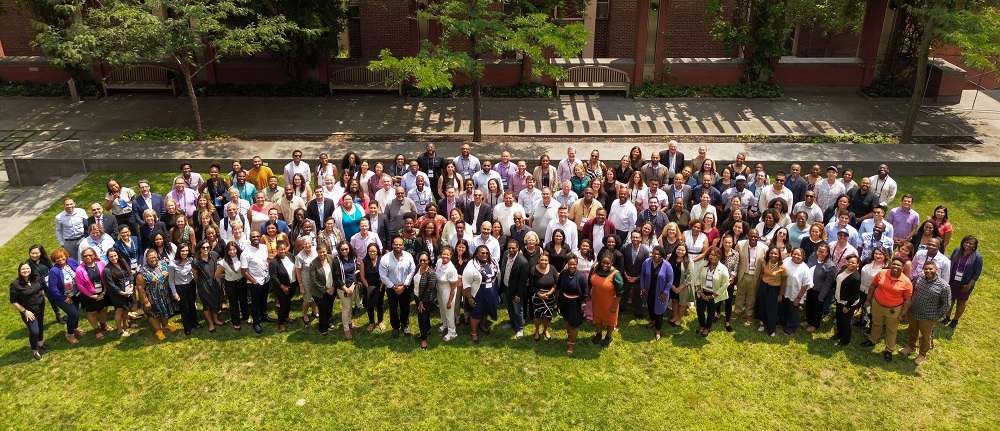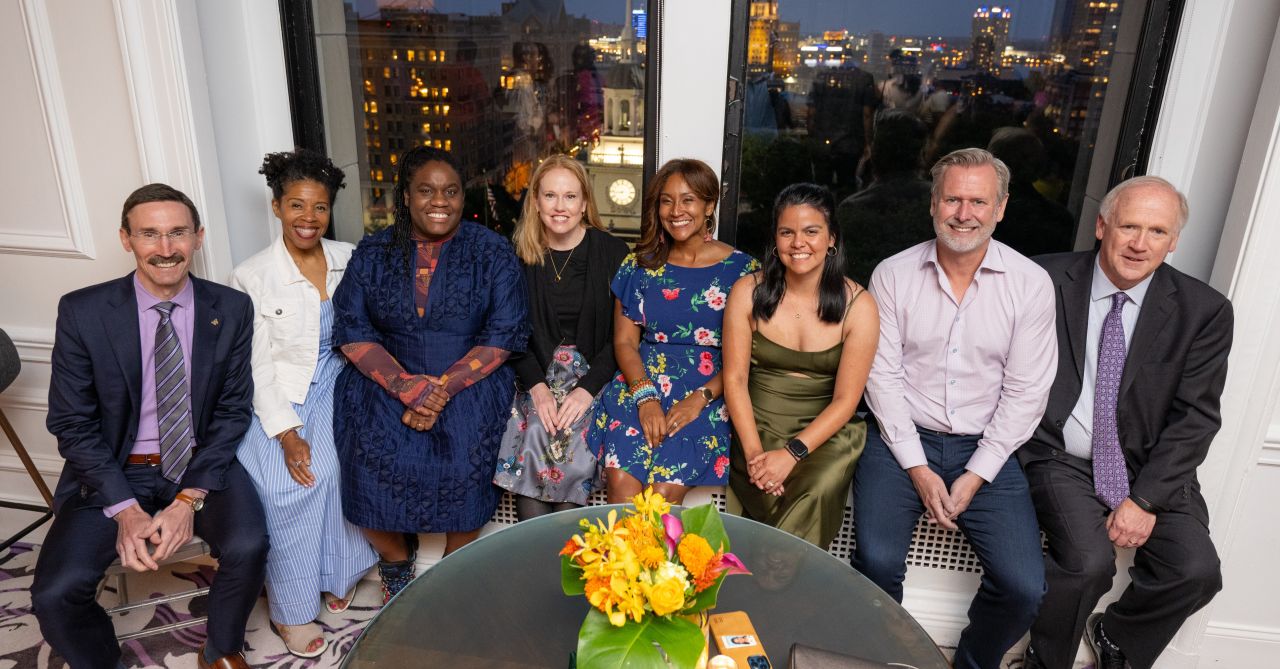Second annual Tenure Project conference convenes underrepresented junior business faculty developing academic careers
For junior faculty members across the country, achieving tenure is the ultimate goal—the culmination of years of work, a personal mark of one’s dedication to an institution, and an opportunity to lead within the school.
However, with precious few Black, Latiné and Native American scholars in tenure-track positions, there exists an unfulfilled need for younger, more diverse perspectives in higher education in general and at business schools in particular.
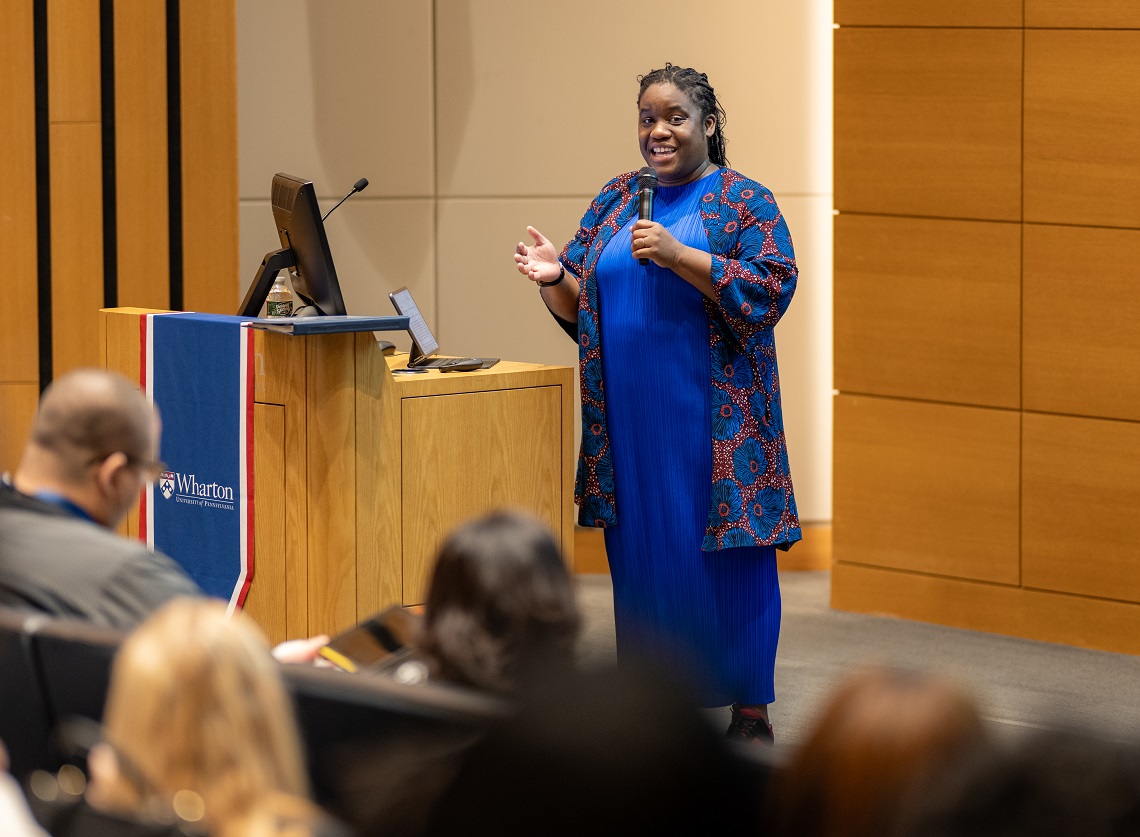
Co-founder Esther Uduehi addresses the Tenure Project 2023 conference. Photo by Sameer Khan of Fotobuddy.
That’s why Esther Uduehi, an assistant professor of marketing and international business at Foster School of Business, and Wendy De La Rosa, an assistant professor of marketing at the University of Pennsylvania’s Wharton School, co-founded The Tenure Project, an initiative aimed at raising dialogues about the issues facing Black, Latiné and Native American junior faculty obtaining tenure at U.S. business schools.
“When I got my offer from UW Foster,” Uduehi recalls, “I proposed this idea of having a small conference that was going to bring together junior faculty.”
Nationwide initiative
From this idea grew The Tenure Project, which offers programs, mentoring and events to forward discourse on Black, Latiné and Native scholars obtaining tenure. The Foster School is a founding sponsor of the initiative, together with Wharton and The PhD Project. Foster hosted the inaugural Tenure Project conference in 2022. This year, it took place at Wharton in Philadelphia, welcoming 140 junior faculty members, along with dozens of senior faculty who helped organize sessions, workshops and mentorships.
Foster sent a large contingent of faculty to the July conference, demonstrating the school’s widespread commitment to helping historically marginalized junior faculty achieve tenure.
“The commitment that it takes to actually build this into your schedule and show up for these junior faculty is something that I’m really, really proud of,” says Christina Fong, the Michael G. Foster Endowed Professor and associate dean of undergraduate programs at Foster.
Fong, the first person to learn about Uduehi’s proposal, feels strongly about the need for a diverse range of perspectives in every faculty, a position she has championed through the Tenure Project.
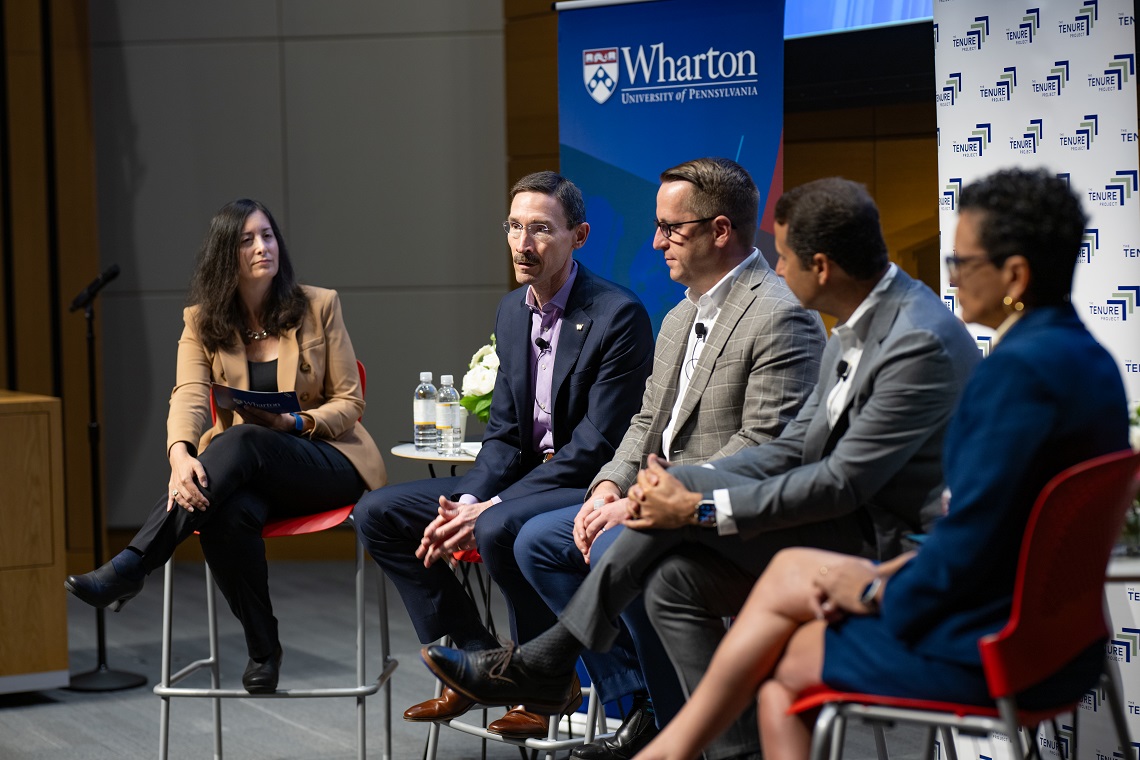
Dean Frank Hodge (second from left) speaks on a panel at the Tenure Project 2023 national conference. Photo by Sameer Khan of Fotobuddy.
“If what we want is to have our students learning about evidence-based practices and give them the kind of foundation for theoretical frameworks and critical thinking that they are going to need in order to succeed, we need to be hiring folks with PhDs,” Fong says. “There are just not very many Black, Latiné and Native folks who have PhDs in business. And so, with every single person who is graduating with a PhD from one of those communities, it’s so important that they are able to succeed and get tenure in business schools.”
Fostering the future
The response to this year’s Tenure Project conference has been stellar. According to a post-conference impact survey, almost every single attendee felt that the event was valuable to attend, inspired a sense of community and contributed to their own professional development.
“It’s so exciting to be in a room with people who share similar interests and are really interested in trying to understand how to tackle these major problems in academia,” Uduehi says. “To see such a really supportive room is just so powerful.”
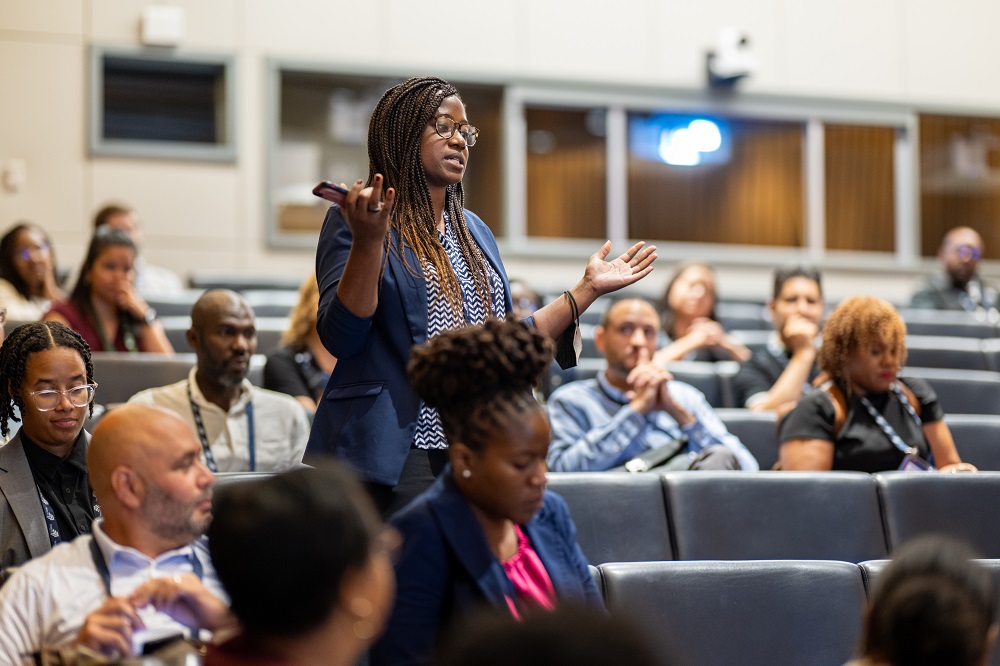
The Tenure Project promotes important dialogues about the challenges that Black, Latiné, and Native American junior faculty face when obtaining tenure. Photo by Sameer Khan of Fotobuddy.
With all this positive feedback, it can be easy to forget how young The Tenure Project still is. In only its second year, and with the majority of underrepresented junior faculty still early in their tenure clocks, the success of this initiative will grow over time.
“We’re still trying to capture as many people as possible who are interested in these issues, and bringing on sponsors that are also interested in these issues,” Uduehi says.
The Foster School will continue to lead these efforts; its Consulting and Business Development Center has become the institutional home of The Tenure Project. In this role, Foster provides critical support and institutional memory for future conference hosts.

